Jeremy Lin, Kobe Bryant, Others Show Why NBA Needs to Change NBA All-Star Game Fan Voting Rules
Only two weeks remain until the 2014 NBA All-Star Game's fan voting process closes-a process that has been controversial for the last few years for rewarding perhaps undeserving fan favorites and punishing other NBA stars who have made great strides in seasons past.
Last year, several instances in the fan balloting process led to some controversial picks and almost-picks that threw the fan ballot process into question. The Boston Celtics' Kevin Garnett, who had a subpar half-season, as compared to the high standards the future Hall of Famer has set for himself in years past, received more votes to start in the game over two more deserving centers-the New York Knicks' Tyson Chandler, who was having a stellar first half for the Atlantic Division-leading Knicks and introduced rebounding and defense to New York basketball, and Joakim Noah, who was the Chicago Bulls' most productive superstar on offense and helped the Bulls stay competitive and formidable without the injured Derrick Rose.
Then, there was the case of the wildly popular Jeremy Lin, who shocked basketball pundits and experts when, despite a mediocre first half of the 2012-13 NBA season with the Houston Rockets, he came within roughly 45,000 of upending Chris Paul, who ended up being the MVP of the All-Star Game that year.
This season, Lin has improved his stats and overall play, but he isn't quite as high up as he was last year when he finished third in the voting for the Western Conference's backcourt starting lineup, largely thanks to the emergence of the electrifying Stephen Curry, who is third in the NBA All-Star balloting for the West's backcourt with 481,698 votes. However, Lin is right in the mix with 358,725 votes, and with the possibility of a last minute surge in ballots before the Jan. 20 cutoff line, especially if Asian hoops fans who adore Lin start voting en masse, there is a chance that Lin could make a serious end-run for a slot in the starting lineup for the All-Star Game next month.
Lin has upped his game by leaps and bounds this season, at one point scoring more than 16 points per game for the Rockets while shooting close to 50 percent from the field as one of the better sixth men in the NBA. But he has a lot of catching up to do if he wants to catch the current frontrunners in the West's starting backcourt: Curry, No.2 vote getter Paul (533,647 votes) and, of course, Los Angeles Lakers superstar Kobe Bryant (723,031 votes).
However, Bryant won't be able to make it to the game this season as he recovers from a fractured left tibial plateau.
And hence, therein lies the problem at hand.
ENJOY READING JEAN PAUL'S JEREMY LIN/NBA STORIES? CHECK OUT MORE HERE
Bryant himself this week said that while the respect that NBA fans around the world have been paying to him has flattered him, he would much rather prefer that fans reward young up-and-coming players, singling out the Portland Trail Blazers' sensational Damian Lillard as one such player who deserves All-Star consideration from the fans.
"I really enjoy watching what the younger guys are doing and how they're performing," said Bryant, as reported by ESPN. "Even though there's so much respect from me to be able to go out there and play for the fans, I'd much rather see the young guys play in the game because they've obviously put the work in to be in it. I'd much rather go out there and see them participate."
Bryant has a point. This writer would love to see Bryant in the game IF he was healthy and as productive as he was last season, when he put forth a Herculean effort just to get the aging, struggling and discombobulated Lakers into the playoffs. There was absolutely question that Bryant deserved to be named to the All-Star team for the West. But Bryant has only played in six games this season thus far, and the meager stats he put up during that time (13.8 points, 42.5 percent shooting) look more like the line for an average role player on the bench, not a starting guard for the NBA All-Star Game.
Another key example this season? Derrick Rose.
Rose played about 10 games before his right knee gave out on him and he was done for the season again. Yet at press time, he has the third-highest number of votes in the backcourt for the East at 299,950 votes. Ray Allen, who is in the twilight of his career and netting an average of only 10.0 points per game for the world champion Miami Heat, is among the top East backcourt vote-getters with 143,714 votes, as is Rajon Rondo, who has 111,335 votes and has yet to play a single game for the Celtics this season.
Meanwhile, Lillard, last year's Rookie of the Year, has been on fire, scoring 21.9 points and 5.8 assists as he has played a major role in the 26-9 start of the Blazers, who are the third seed in the West and are looking like serious contenders in the NBA title picture. John Wall has evolved into one of the deadliest guards in the East for Washington, averaging 19.7 points and 8.8 assists. Kyle Lowry has been having his best statistical season ever, with 15.7 points and 7.4 assists, as he's led the Toronto Raptors to the top of the Atlantic Division thus far. And Jeff Teague has been solid for the Atlanta Hawks, the third-best team in the East, with 16.7 points and 8.0 assists. Don't they warrant some consideration for being an NBA All-Star starter, or being in the game itself?
The age-old defense is simple: "The fans should have the right to vote for their favorites. It's their right and their choice," critics and many fans will argue. However, is rewarding injured and/or underachieving fan favorites really what's best for the game, instead of giving rising stars the chance to shine brightly on one of the biggest stages in the NBA, in the sport of basketball itself?
For that, the NBA seems like they would be much better suited if they somehow refined the NBA's voting process for the All-Star Game. There should be a way that the fans can have a say in who goes to the midseason spectacle, yet at the same time, rewards players--preferably younger players and the stars of tomorrow--that have a fine showing in the first half of the season. One possible way is to institute a stat cutoff or quota, such as making it that only players with 15.0 points or more and/or the top 10 leaders in statistical categories around the NBA can qualify. That rewards excellence and opens up the possibility for deserving players to have a chance to play in the All-Star Game. Another way is to have a game limit required. Arrange that only players that play in 25 to 30 games at a minimum can be eligible for All-Star balloting, with players falling short of those qualifications being taken off the ballot or disqualified from eligibility. That way, it assures that players who are putting in the time on the floor every night are recognized for their work fairly.
No disrespect to the star power or legacies of a Rose, Bryant or Garnett, but if they're not playing up to par, then other players who are more deserving of the honor of being an All-Star should be considered. Young blood, the stars of tomorrow, and more importantly, talented athletes that deserve it are the mortar of what the league will be built on in the next few years. But if the fans are allowed to blindly vote for their favorites without considering any of the other rising talents in the game, that won't happen, and that ultimately isn't good for the NBA. Only by the league stepping in and streamlining the fan voting process a bit will those hidden diamonds in the rough get displayed for the jewels they are in a stage befitting their talents.


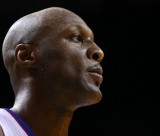
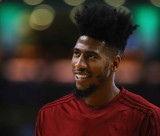

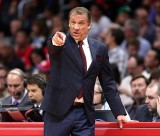












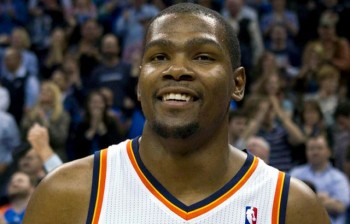

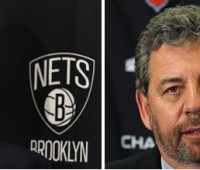
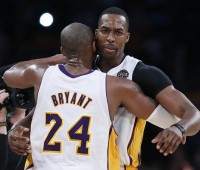




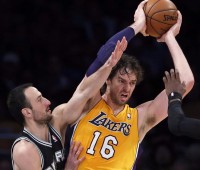



Join the Conversation